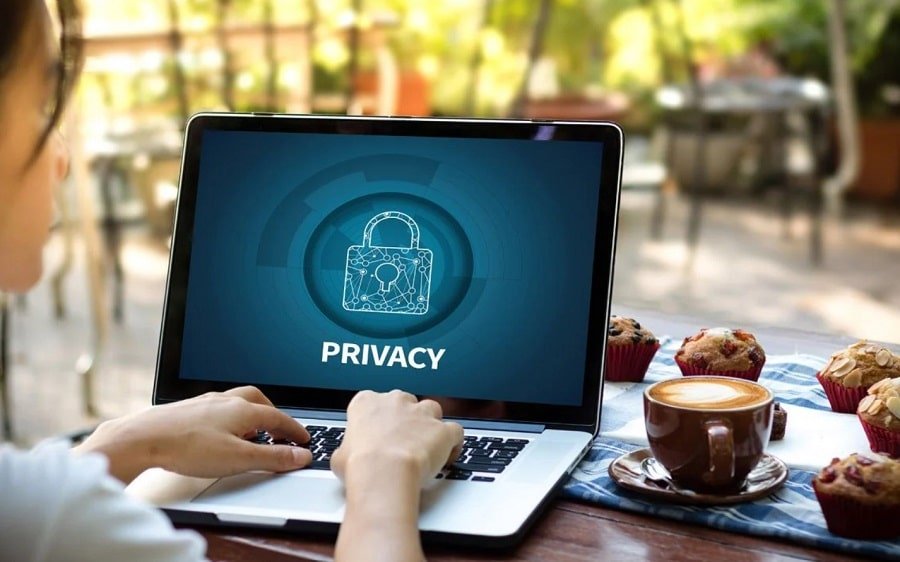With the recent changes in technology, it is more important than ever to protect your privacy online. There are many ways to do this, but some of them can be more complicated than others. Here are some simple steps for you to follow.
In 2021, the government will be able to use facial recognition software to identify you in a crowd. There are ways to protect your privacy from this technology, but it is important that you take action now.
How can you keep your data safe online? How can you safeguard your online privacy? What safeguards should be implemented to enhance internet safety? How can you keep your data and identity safe online? To obtain answers to the following questions, read the whole article.
Online privacy is a significant problem that has to be addressed in today’s technology environment. Almost everyone’s personal information is now stored on the internet, making it susceptible to theft or abuse. This data has been gathered in a variety of ways by tech companies, various applications, and websites in order to earn revenue in the form of customized advertisements. However, this personal information may be abused if it is released or hacked, or if it is readily traced by hackers. As a result, it is always preferable and essential to safeguard your online privacy.
It’s never been easier to maintain online privacy and security, so don’t worry! We’ll provide you Ten Tips To Safeguard Your Privacy Online in this post, which will help you manage and protect your financial and personal information when you’re on your favorite social networking, news, and entertainment sites.
Ten Ways To Keep Your Online Privacy Safe
These suggestions will assist you in improving the reliability, safety, and security of your online privacy. You won’t have to be concerned about your internet security if you follow these guidelines.
Don’t give out too much personal information.
The first step in protecting your online privacy is to avoid sharing or oversharing your personal information.
It’s one of the best methods to safeguard your online privacy. Giving up too much personal information on social media sites like Facebook, Twitter, and Instagram may make it simpler for hackers to acquire identifying information, allowing them to steal your identity or gain access to your financial information. Take Facebook, for example. By searching through your Facebook account, a thief may learn your mother’s maiden name, your ideal birth date, and much more. This information is occasionally used to reset passwords on bank accounts as security questions. People, on the other hand, do not take this advise seriously and fall prey to greater security risks. According to a survey conducted by the Identity Theft Resource Center, 52 percent of respondents provided personally identifiable information on social networking platforms. To summarize, disregard the “About Me” sections in your social media accounts to preserve your online privacy.
Make a Secure Password
Is your date of birth your password? Then it’s time to sell your privacy! Always remember to choose a complex password for all of your accounts. Passwords are critical to your online safety. A strong password is one that is difficult to guess. As a result, you were able to simply prevent hackers from accessing your account.
In brief, we’re attempting to convey the importance of using at least 12 digits, as well as special characters and upper- and lower-case letters. Never use a password that is personal or simple to guess, such as your birthday, pet’s name, or mother’s name. Protecting Your Privacy Online may be as simple as using a secure password.

To surf, use incognito or private mode.
Do your online surfing in incognito/private mode if you don’t want your computer/smartphone to store your browser history, temporary internet files, or cookies. Almost every browser now has its own version of this kind of privacy protection. In Google Chrome, it’s called incognito mode, in Firefox, it’s called Private Browsing, and in Internet Explorer, it’s called InPrivate Browsing. Others won’t be able to track your browsing history from your smartphone or computer if you activate this privacy option.
Change your search engine.
Google is all over the place! Google Chrome is nearly universally used for day-to-day online browsing. You don’t have to, however! People choose anonymous search engines for a variety of reasons. This kind of search engine does not gather any of your personal information, data, or history, keeping it completely private. Ad trackers on the websites you visit may also be blocked by anonymous search engines. This is a crucial technique for safeguarding your online privacy.
Make use of a VPN (Virtual Private Network) (VPN)
Using a virtual private network (VPN) is the best method to safeguard your online privacy. A virtual private network (VPN) creates a secure connection between you and the internet. All of your data traffic is sent via an encrypted virtual tunnel when you connect to VPN.

This When you use the internet, hide your IP address so that no one can see where you are. External assaults cannot penetrate a VPN connection. When it comes to internet privacy, a VPN is always a good option. When you’re on a public Wi-Fi / Network, such as at a library, coffee shop, or other public place, using a VPN is particularly essential. By adding an additional layer of protection, a VPN will make it more difficult for hackers to violate your online privacy and access your personal information. VPNs such as Express VPN and Nord VPN are recommended.
Use a messaging app with end-to-end encryption.
Our smartphone’s messenger app is a critical component. As a result, be sure to choose messaging software with a strong privacy policy, such as End-to-End Encryption, no third-party access, and so on. Most contemporary messaging applications use encryption, however it’s often encryption in-transit, in which messages are decoded and kept on the provider’s servers. What if those servers are hacked? Don’t take that chance; instead, utilize Messenger’s end-to-end encryption. So that no one except the recipient can view or store the communication. Use Whatsapp or Signal to communicate.
Use Unknown WiFi and Bluetooth Connections At All Costs
This is a crucial piece of advice for safeguarding your online privacy. Only connect to known WiFi networks. When visiting an unfamiliar location, avoid using WiFi and Bluetooth connections. Never utilize public WiFi unless you’re confident in its security. However, if you really must use one, we suggest pairing it with VPN software while connecting to an unfamiliar WiFi network, as this will provide an additional degree of protection. However, try to avoid connecting to unidentified WiFi networks.

Make use of two-factor authentication.
For your most critical accounts, enable two-factor authentication. You’ve seen it before: Before you can log in, you’ll usually be prompted to provide your phone number so that you may get a text message with an extra number you provide. In these age of cyberattacks, two-factor authentication is the best choice.
Two-factor authentication is easy to set up.
- Open the Settings app on your Android smartphone. Then go to Google and choose Google Account from the drop-down menu.
- Select Security.
- Then press 2FA after finding “Signing in to Google” (it will more likely be labeled as 2-Step Verification).
- To begin, click the Get started button.
- To finish activating 2FA on your phone, follow the last instructions shown on the screen.
- That concludes our discussion.
Install the most recent security updates.
Never miss a provider’s security updates! Installing the most recent security update on your device is always advised to enhance online security. Bug fixers, the newest security firmware, and other features are included in security upgrades to safeguard your personal data online.
Be wary of phishing scams.
Not all breaches of our privacy are caused by malware or hackers getting into our accounts surreptitiously. It’s all too typical for us to be duped into giving unscrupulous actors our passwords or personal information. Cybercriminals send us phony emails that seem to be essential. These emails often instruct you to click a link and verify your financial details in order to prevent your account from being frozen or canceled.
Don’t be taken in by these ruses. If you click on a phishing link, you may be led to a faked web page that seems professional, but you may be infected with malware and have your data stolen. Also keep in mind that banks and other financial organizations would never request account or financial information through email or text message. This is a crucial technique for safeguarding your online privacy.

Antivirus software should be used.
The less-than-humble virus is one of the most serious dangers that may result in data leakage. Viruses occur in gadgets, and antivirus software with helpful features may provide an additional layer of protection to your smartphone or computer, keeping it secure. Antivirus software offers real-time security, allowing you to defend your devices from incoming threats, scan your whole computer for known dangers on a regular basis, and get automated updates, as well as detect, block, and remove harmful codes and software. Using antivirus software to safeguard your data and privacy online is a good idea.
Also read
The how to protect your privacy online essay is a blog post about how the internet will be in 2021. It discusses how people will have to use more caution when using the internet and what they can do to protect their personal information.
{“@context”:”https://schema.org”,”@type”:”FAQPage”,”mainEntity”:[{“@type”:”Question”,”name”:”What is one way to protect your privacy when you are online?”,”acceptedAnswer”:{“@type”:”Answer”,”text”:”
There are many ways to protect your privacy online. The best way is to not be on the internet.”}},{“@type”:”Question”,”name”:”What keeps your online private?”,”acceptedAnswer”:{“@type”:”Answer”,”text”:”
My online is private because I am not a human.”}},{“@type”:”Question”,”name”:”How can I improve my privacy online?”,”acceptedAnswer”:{“@type”:”Answer”,”text”:”
The best way to improve your privacy online is to use a VPN. It can also be helpful to use Tor Browser if you are in need of anonymity.”}}]}
Frequently Asked Questions
What is one way to protect your privacy when you are online?
There are many ways to protect your privacy online. The best way is to not be on the internet.
What keeps your online private?
My online is private because I am not a human.
How can I improve my privacy online?
The best way to improve your privacy online is to use a VPN. It can also be helpful to use Tor Browser if you are in need of anonymity.
Related Tags
- how to protect your privacy on social media
- protect your privacy online answers
- online privacy and security
- 4 ways to protect your privacy online
- best online privacy protection services

